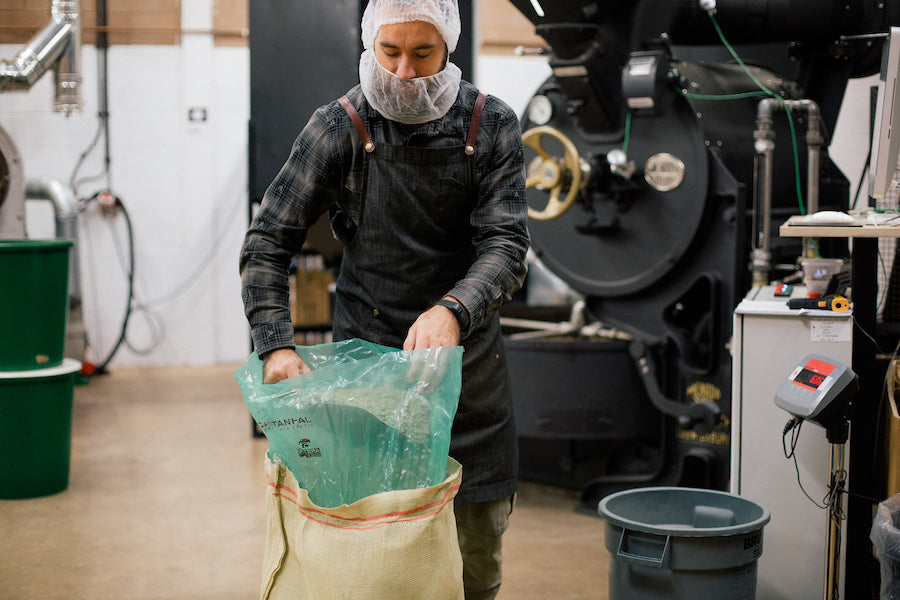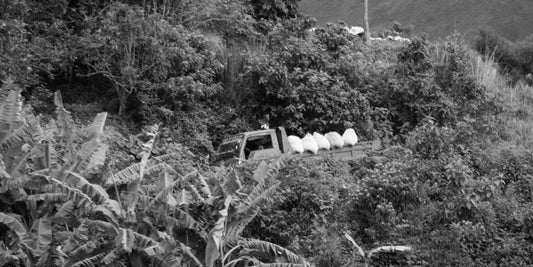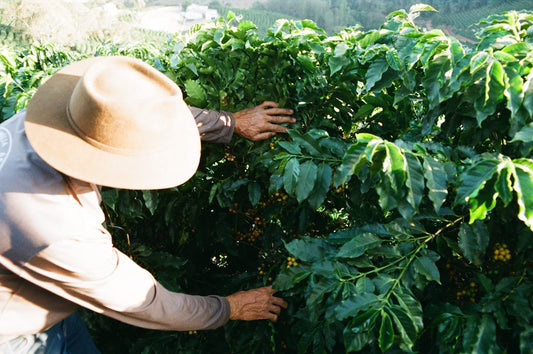
Sourcing coffee during a global pandemic
Who would have thought that we would be sitting down to write this blog post in our lifetime?
Covid-19 has (like it has for everyone this year) really put us through our paces as individuals and as a business. It’s had us asking ourselves questions we never really planned for, you know, the sorts of questions that you can only ask yourself during a global pandemic. Moreover though, it had us having to do things we never imagined we’d ever have to do. One of the surprising outcomes of the pandemic was how it made sourcing coffee more challenging. Let’s take a little trip down memory lane…
There were a couple of founding principles we held dear when we were thinking of starting a roastery back in 2014. One was that we wanted to introduce speciality coffee to a wider market. At the time there was virtually no artisanal speciality coffee in supermarkets, or in any market, for that matter. There was a bit of Union and Grumpy Mule kicking about, but that was about it.
The other principle was that we wanted to form long-term relationships with our supply chain and buy from farmers, producers and cooperatives year on year – celebrating the seasonal variance in the coffee.

The commodity coffee market seems to treat coffee as this homogenous product that never changes. If someone regularly buys a certain commodity brand then they might expect the flavour to be the same every single time they purchase it, regardless of season or year. This creates a bit of a problem for the speciality market in undoing some of the predispositions people have about coffee. For us, of course we like our coffee to be consistent, but coffee is a crop and no single growing season is the same in any climate, which ultimately affects how successfully the crop grows.
“THEY BASICALLY PANIC SOLD THINKING THEY WOULD GET STUCK WITH COFFEE THEY COULDN’T GET RID OF DUE TO THE DOWNTURN IN DEMAND.”
We saw the buying habits of many small speciality coffee roasters as fickle. There was a lot of sporadic buying going on. We felt that even as a small roaster we had an impact on our producers and as we grew our volumes would become more meaningful.
This has been one of the defining principles of our business ever since, and there are coffees in our range (well, at least until this year) that have been there since day one.
In March that all changed. There was a week in the spring where four of the coffees we’d been buying consistently for several years suddenly became unavailable. For the most part the reason was that when the hospitality sector shut down, global coffee volumes ground to a halt (pun intended), farmers got scared and sold their positions to anyone who would buy. They basically panic sold thinking they would get stuck with coffee they couldn’t get rid of due to the downturn in demand.
We’ve always wanted to be as transparent about our coffees as possible, but overnight we were in a position where we were having to find replacement coffees. Finding coffee wasn’t a problem – there was an enormous oversupply -, and we were able to quickly find alternatives that met our quality, taste and price criteria. The problem was they were from different farms or producers, and now there was a discrepancy between what the packaging said and what was inside the bag. Needless to say, a lot of packaging ended up in the bin.
Since then things have improved a little, but it’s highlighted a fairly fundamental problem – we’re trying to create consistency in a product that is inherently inconsistent. That’s why we’ve decided to make some changes. Instead of communicating exactly what farm, producer or cooperative grew the coffee on the bag itself, we’ve decided to use a more general name for each coffee which allows us the flexibility to change the coffee inside if need be.
Our core range consists of a collection of nine single-origin coffees which are designed to deliver the quintessential qualities of a certain growing region. We’ve taken the decision that as long as each product delivers this, we’re happy to change the supplier if absolutely necessary.

In return we’re actually going to increase the traceability and provenance of the coffee, bolstering the information we provide on the website and being super transparent about the supply chain. So, if you notice the name of your favourite Ethiopian Natural changing, that’s why.
Sometimes in business, you have to change direction to improve and grow. We believe that we have to move with the times and what was relevant 5 years ago ain’t gonna cut it in a post-pandemic world. Onwards and upwards!




